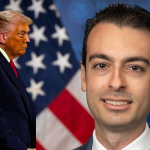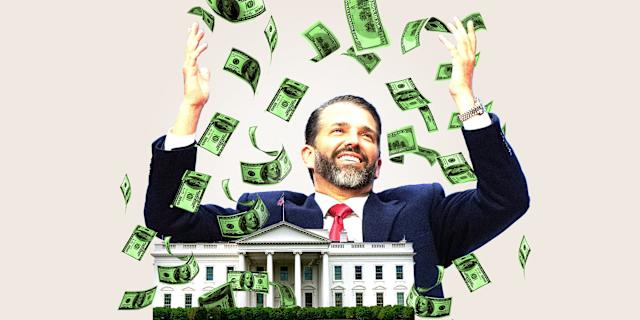A firestorm has erupted in Washington following news that Unusual Machines — a once-obscure Florida-based drone company — secured a massive Pentagon contract. The firm, partially owned and advised by Donald Trump Jr., will supply 3,500 drone motors and components to the U.S. Army’s 101st Airborne Division, marking its largest-ever government order. The deal has sparked a fierce debate across the capital, raising questions about ethics, defense policy, and the blurred lines between politics and profit.
The Pentagon’s New Drone Push
The contract with Unusual Machines is part of a broader Pentagon initiative to revitalize domestic drone manufacturing. President Trump’s June 2025 executive order, “Unleashing American Drone Dominance,” and Defense Secretary Pete Hegseth’s “Buy American Drone” campaign aim to eliminate dependence on Chinese components and fast-track U.S.-made alternatives. The Department of Defense has prioritized this policy as a cornerstone of national security advancement, fueling billions in contracts for American producers (source).
Unusual Machines’ CEO Allan Evans confirmed that the company will also produce additional parts under Blue UAS compliance — a certification that ensures U.S. military-grade safety and encryption standards. The U.S. Army has hinted that an additional 20,000 units could be ordered in 2026, reflecting intensified efforts to rebuild America’s drone industrial base.
Trump Jr.’s Stake and Soaring Stock
Donald Trump Jr., who joined Unusual Machines as an adviser in late 2024, holds 331,580 shares in the firm, valued at roughly $4 million. Since his involvement, the company’s stock has surged by over 900%, making it one of the year’s most explosive performers on the NASDAQ. Trump Jr.’s presence coincided with a wave of investor optimism that this modest Orlando startup suddenly had powerful connections at the highest levels of government.
Company filings show that Unusual Machines recently began domestic production after years of importing components from China. The new Pentagon order is its first major domestic milestone — and it arrives just months after the administration removed the contracting restrictions that once favored large defense conglomerates.
Conflict of Interest or Industrial Strategy?
Critics argue that this deal “reeks of conflict of interest,” citing the proximity between Trump Jr.’s financial interests and his father’s defense policies. Several watchdog groups are calling for congressional oversight hearings to determine whether political favoritism influenced the contract’s approval, especially since it reportedly bypassed traditional open bidding. Ethics experts note that while no evidence has surfaced of direct interference, the perception problem remains significant.
Supporters, however, claim that this deal epitomizes “America First” industrial strategy — a deliberate effort to repatriate defense manufacturing, create skilled jobs, and break reliance on foreign suppliers. As one defense analyst told the Financial Times, “If Unusual Machines can deliver reliable drones made in America, it shouldn’t matter who sits on their board.”
A Policy Rooted in Trump’s Executive Orders
Trump’s Executive Order 14307, signed in June 2025, focused on accelerating U.S. drone production through new procurement pathways and private investment incentives. The Defense Department’s internal memo, “Unleashing U.S. Military Drone Dominance,” transferred key contracting authority from bureaucrats to frontline commanders, drastically shortening response times and boosting flexibility in acquisition (source).
Defense Secretary Hegseth, a longtime Trump ally, has positioned this campaign as both a defense imperative and a patriotic mission. In a recent Pentagon briefing, he stated, “We’re done outsourcing innovation. American drones will dominate the airspace of tomorrow.”
The Optics Battle in Washington
Still, Washington’s optics are hard to ignore. A president’s son profiting from defense contracts authorized under his father’s administration cuts close to the line, even if no laws were broken. The story’s timing — amid a heated midterm climate and renewed scrutiny of government ethics — has amplified its impact.
Lawmakers from both parties have demanded transparency into the selection process for Unusual Machines. Some officials at Fort Campbell, Kentucky, where the 101st Airborne operates, declined to comment on procurement specifics but confirmed that the company’s products “met all technical specifications.”
The Bigger Picture: Drones and Power
Beyond the politics, this episode highlights deeper questions about America’s evolving military-industrial complex. As the U.S. accelerates its homegrown drone programs, corporate and political interests inevitably intersect. From Silicon Valley investors to Florida startup founders, the race to dominate drone production has become the newest frontier of American defense capitalism.
Whether Trump Jr.’s drone connection proves to be savvy strategy or ethical misstep, it underscores a truth Washington has long known — that influence, innovation, and ambition often fly on the same wings.
For more on defense-tech ethics, see our related article on BrandonBent.com. For background on the Pentagon’s domestic drone initiative, visit U.S. Department of Defense’s official statement.
Sources












